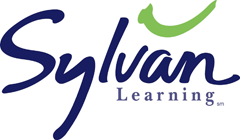 by John Stossel –
by John Stossel –
With public schools spending more than $100,000 per student on K-12 education, you’d think they could teach students how to read and write.
South Carolina is one of many states to have trouble with this. It spends $9,000 per student per year, and its state school superintendent told me South Carolina has been “ranked as having some of the highest standards of learning in the entire country.” So let’s ask the infamous question, “Is our children learning?”
Dorian Cain told me he wants to learn to read. He’s 18 years old and in 12th grade, but when I asked him to read from a first-grade level book, he struggled with it.
“Did they try to teach you to read?” I asked him.
“From time to time.”
His mom, Gena Cain, has been trying to get him help for years. If Dorian were in private school, or if South Carolina allowed parents to choose schools the way we choose other products and services in life, Dorian and Gena would be “customers” and able to go elsewhere — if any school were dumb enough to serve a customer as poorly as Dorian has been served. But since Gena is merely a taxpayer, forced to pay for the public schools whether they do her any good or not, she can’t even demand a better education for her son. “You have to beg,” she said. “Whatever you ask for, you’re begging. Because they have the power.” They do. What are you going to do — go elsewhere? Gena can’t afford that.
Gena’s begging eventually got results — just not results that helped her son. What the school bureaucrats did was hold meetings to talk about Dorian. (Bureaucrats are good at holding meetings.) At the meeting we watched, lots of important people attended: a director of programs for exceptional children, a resource teacher, a district special education coordinator, a counselor and even a gym teacher. The meeting went on for 45 minutes.
“I’m seeing great progress in him,” said the principal. “So I don’t have any concerns.”
Well, Gena still had a concern: Her son could barely read.
Was Dorian just incapable of learning? No. ABC News did see great progress in him — when we sent him to a private, for-profit tutoring center. In just 72 hours of tutoring, Sylvan Learning Center brought Dorian’s reading up more than two grade levels.
In 72 hours, a private company did what South Carolina’s government schools could not do in over 12 years.
President Bush’s answer to school systems that pass students like Dorian on to the next grade year after year was “No Child Left Behind.” It demands that states test students, and it establishes consequences for schools whose students consistently do poorly. Teachers in at least one South Carolina school responded to the pressures of the law by giving some students the answers to the test in advance, said Dale Hammond, grandmother of one such boy. “They were teaching him to cheat!” she told me.
She promptly pulled her grandson out of that government school and enrolled him in private school, but most parents can’t afford that. Once you’ve been taxed to support the public schools and other wastes of public money, you don’t have a lot left to spring for private school tuition.
But there is good news, said the state school’s superintendent: South Carolina is seeing great progress in some areas. “We are ranked No. 1 in the country,” she bragged, “on improvement on SAT.”
That’s great. But when you’re ranked at the bottom, improvement doesn’t mean much, and South Carolina, even after its “No. 1 improvement” is still last among states. SATs don’t make for perfect comparisons because states have different participation rates, but South Carolina’s participation rate is about average, and yet its students perform well below the average.
That’s not good. Yet the superintendent said, “We are making tremendous progress in South Carolina, and we’re very proud.”
In government monopolies, that’s how bureaucrats think.
HT: JFS Productions
